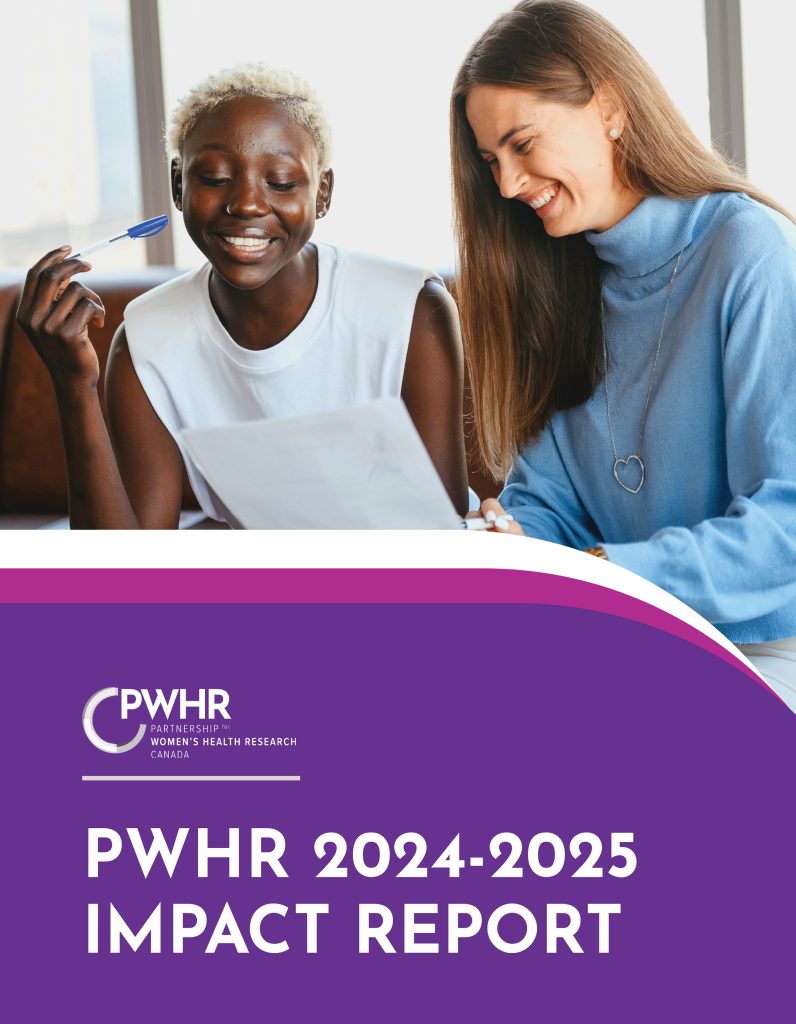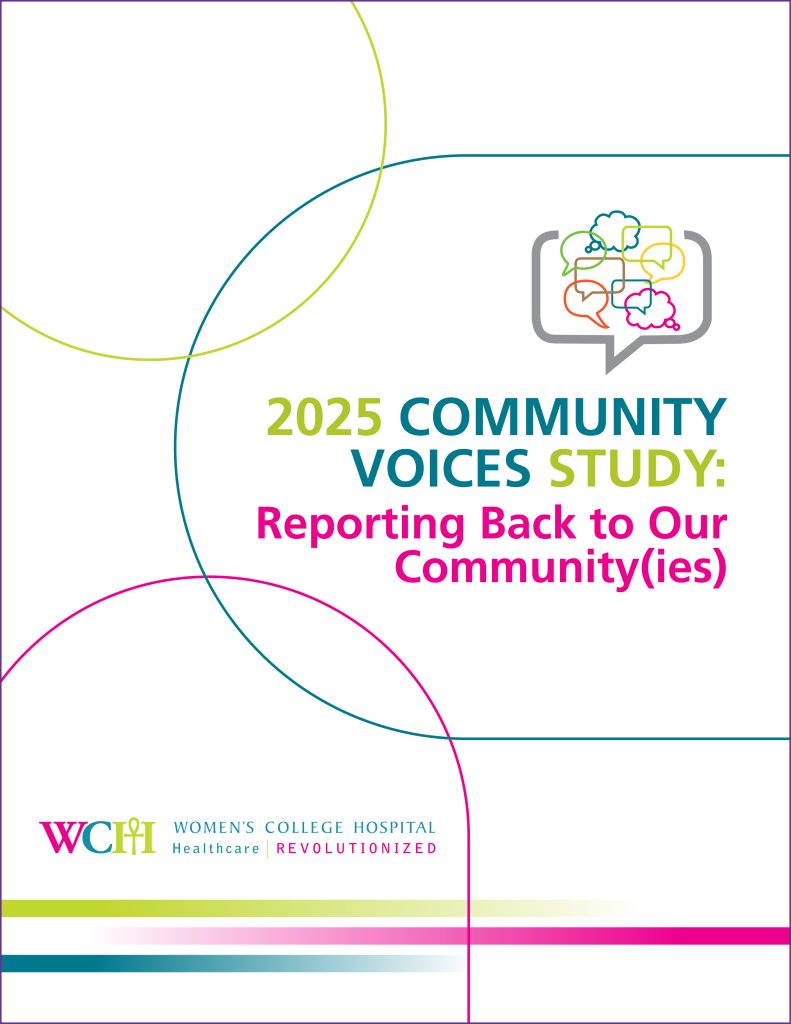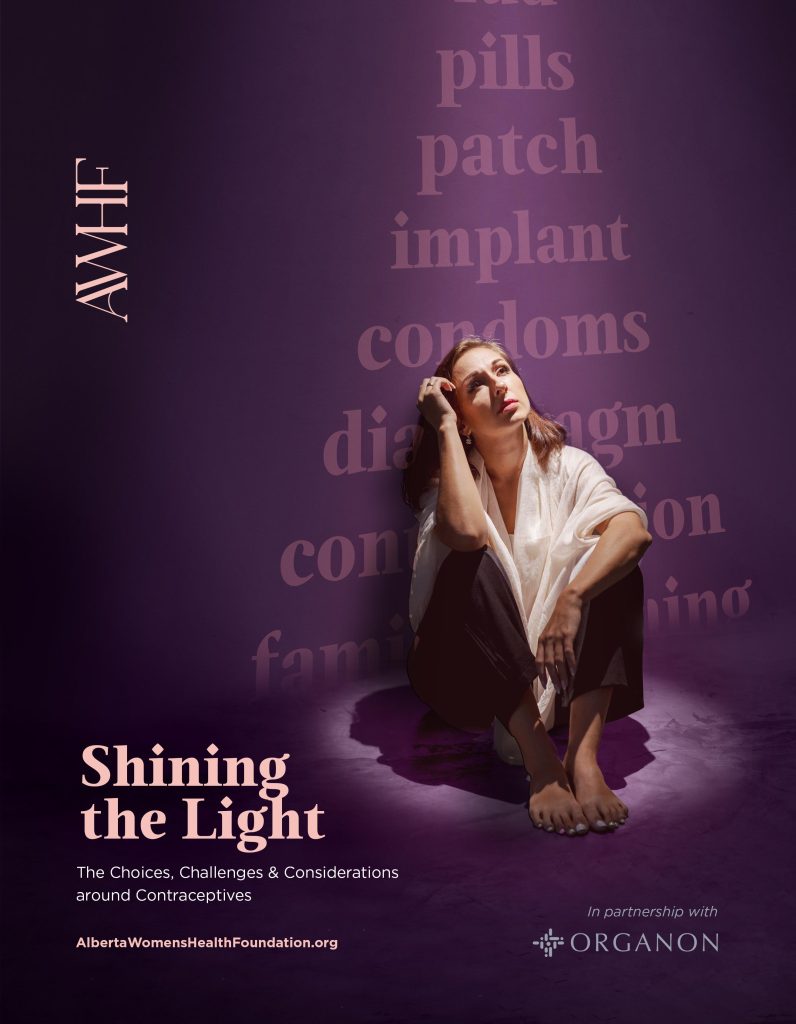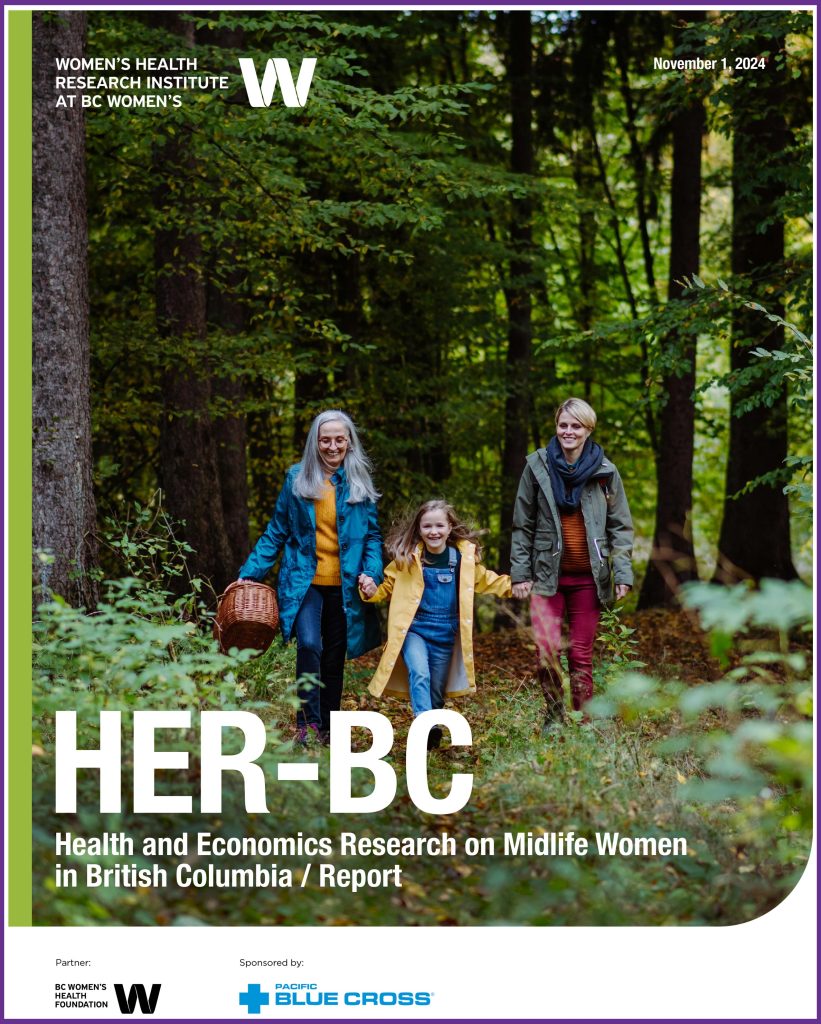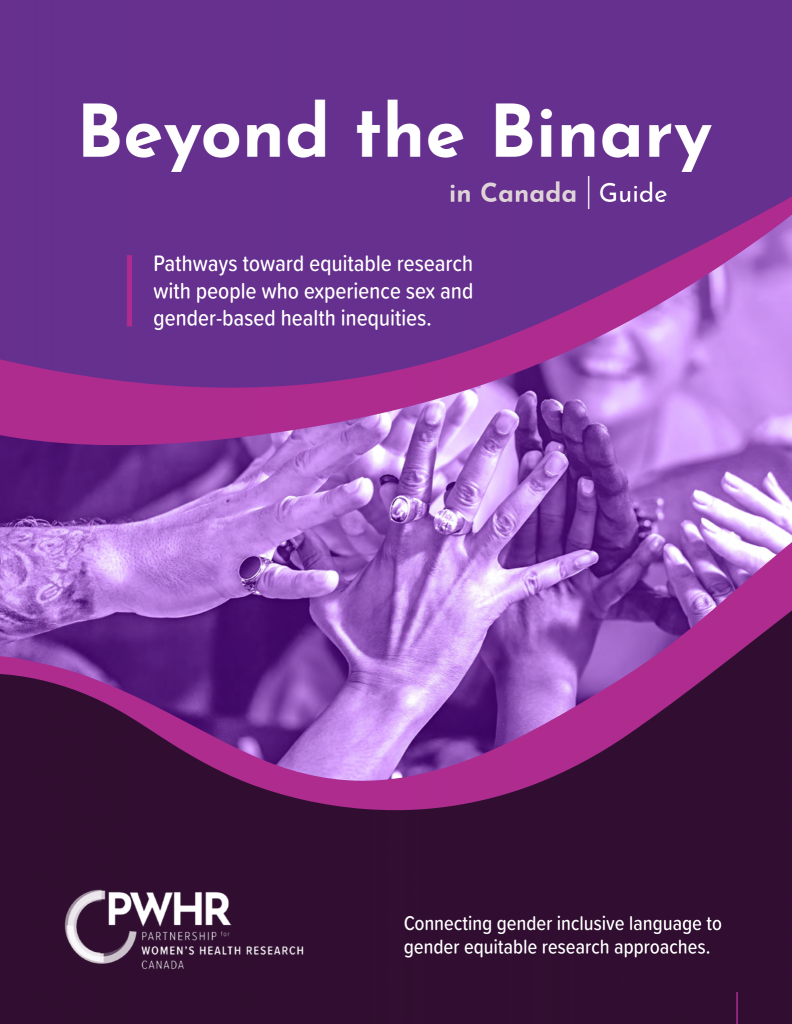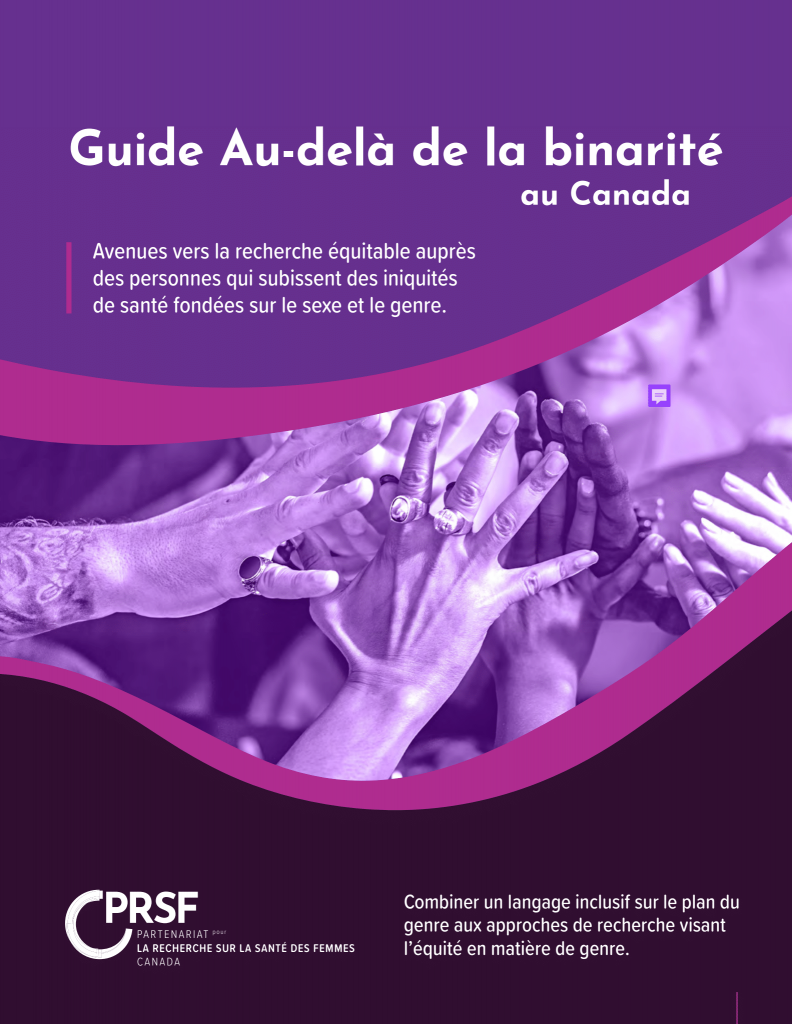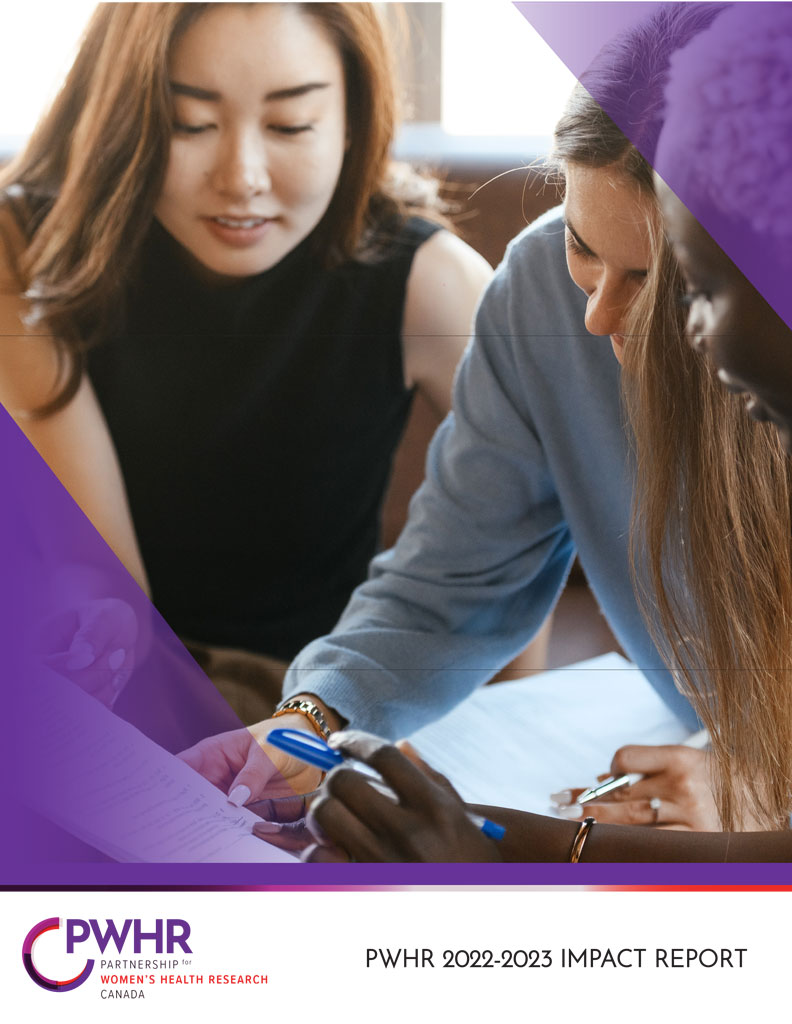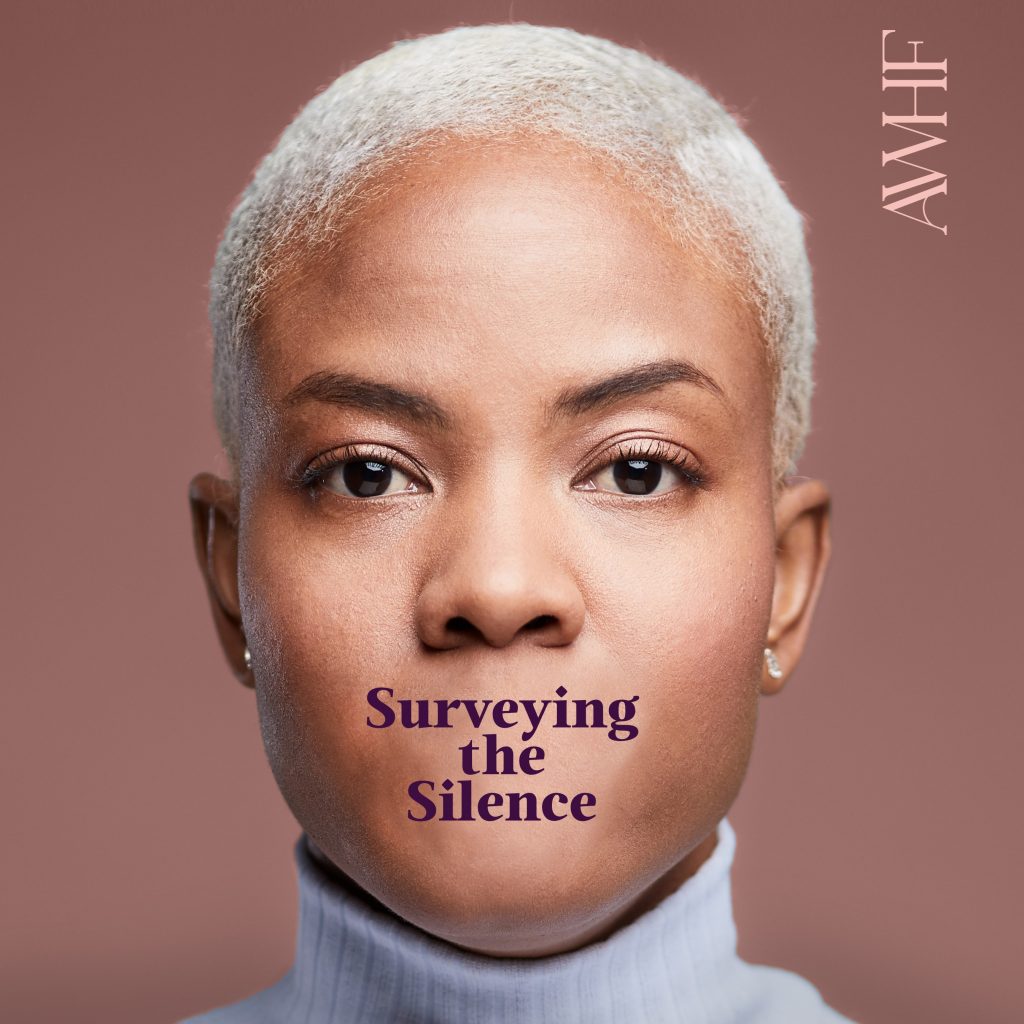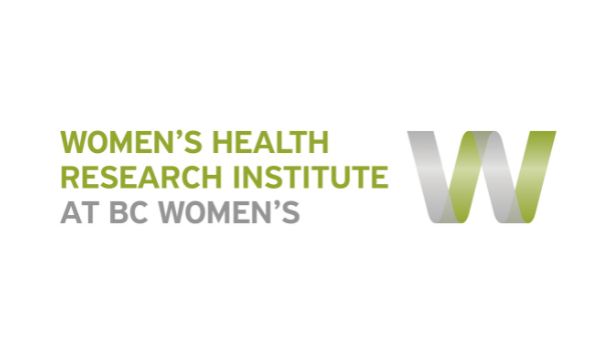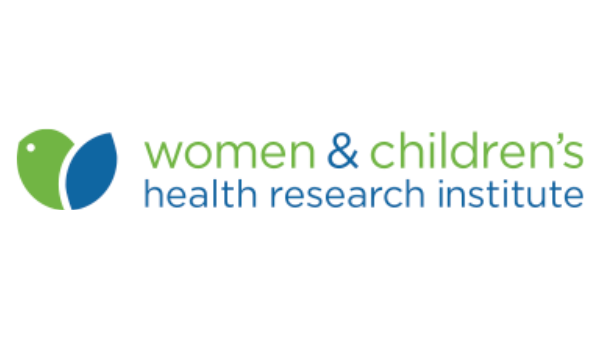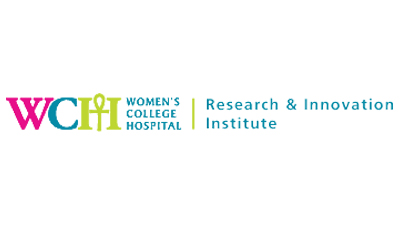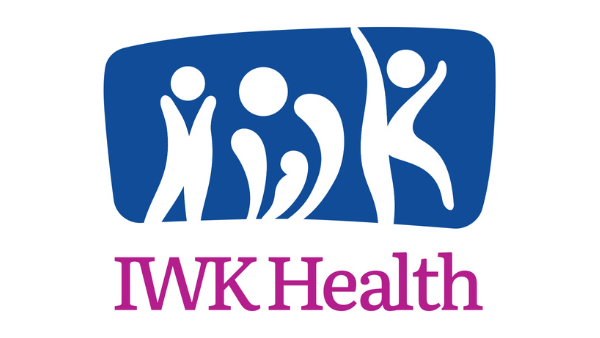REPORTS
PWHR 2024-2025 Impact Report
PWHR convenes hybrid and virtual events to share cutting-edge research and mobilize knowledge that is improving the health of women, trans, and non-binary people. The network also offers national opportunities for mentorship and capacity building, helping to develop the skills and professional networks of the next generation of women’s health researchers.
The PWHR 2024-2025 Impact Report highlights the impact of 9 women’s health research events, which engaged more than 1,100 participants – including researchers, community members with lived and living experience, health care providers and administrators, trainees, and policymakers. These events focused on sharing and mobilizing equitable and inclusive knowledge to support improved health outcomes. Participants joined from across Canada and around the world.
WCH Community Voices Study
In 2010 and again in 2016, Women’s College Hospital released A Thousand Voices for Women’s Health, a landmark research series that amplified the lived experiences of women from diverse backgrounds facing systemic barriers to care. In 2025, the WCH Community Voices Study is the third installment in this powerful series and a renewed commitment to understanding and responding to the evolving needs of the communities they serve.
More than 3,000 women and gender-diverse people shared their experiences navigating the health care system. Their voices are helping reimagine care, strengthen partnerships, and expand the possibilities of what a hospital can be.
Shining The Light: The Choices, Challenges and Considerations around Contraceptives, (2024)
A new report titled “Shining the Light” has been released by the Alberta Women’s Health Foundation, with support from Organon Canada and the Women and Children’s Health Research Institute, highlighting the need for equitable access to contraception. With limited reliable data on contraceptive use in Canada, this initiative set out to better understand Albertans’ experiences. The report surveyed over 2,000 individuals – 92 per cent of whom identified as women – to explore usage patterns, knowledge gaps, and barriers to access.
HER BC: Health and Economics Research on Midlife Women in British Columbia Report (2023)
The HER-BC study, led by the Women’s Health Research Institute in collaboration with the BC Women’s Health Foundation and Pacific Blue Cross, has revealed critical insights into the physical, mental, social, and economic impacts of menopause symptoms on midlife women in British Columbia. This groundbreaking provincial study explores the experiences of perimenopause, menopause, and post-menopause, highlighting health concerns, quality of life, work and caregiving responsibilities, and barriers to accessing health care services.
Beyond the Binary In Canada Guide
The Beyond the Binary in Canada Guide provides nationally relevant, community informed guidance that enables researchers to conduct gender inclusive health research for cisgender women, trans, non-binary, Two-Spirit, gender non-conforming, gender creative, and additional gender divergent identities. When we refer to promoting gender equity in research, we mean the meaningful acknowledgment, engagement, and integration of gender diverse peoples throughout research practices and processes.
Guide Au-delà de La binarité au Canada
Le Guide Au-delà de la binarité au Canada présente des orientations adaptées à l’échelle nationale et éclairées par la communauté qui permettent aux chercheur·se·s de réaliser de la recherche en santé qui est inclusive sur le plan du genre pour les femmes cisgenres et trans, les personnes non binaires, bispirituelles, non conformes au genre, créatives sur le plan du genre et toutes les autres identités divergentes en matière de genre. Lorsque nous parlons de la promotion de l’équité de genre dans la recherche, nous entendons la reconnaissance, la participation et l’intégration significatives des personnes issues de la diversité de genre dans toutes les pratiques et les processus de recherche.
PWHR 2022-2023 Impact Report
The PWHR 2022-2023 Impact Report shares collective national initiatives since PWHR’s launch in March 2022 until December 2023. Highlights include convening 14 women’s health research events that engaged more than 1200 trainees, researchers, policymakers, healthcare providers and other strategic partners.
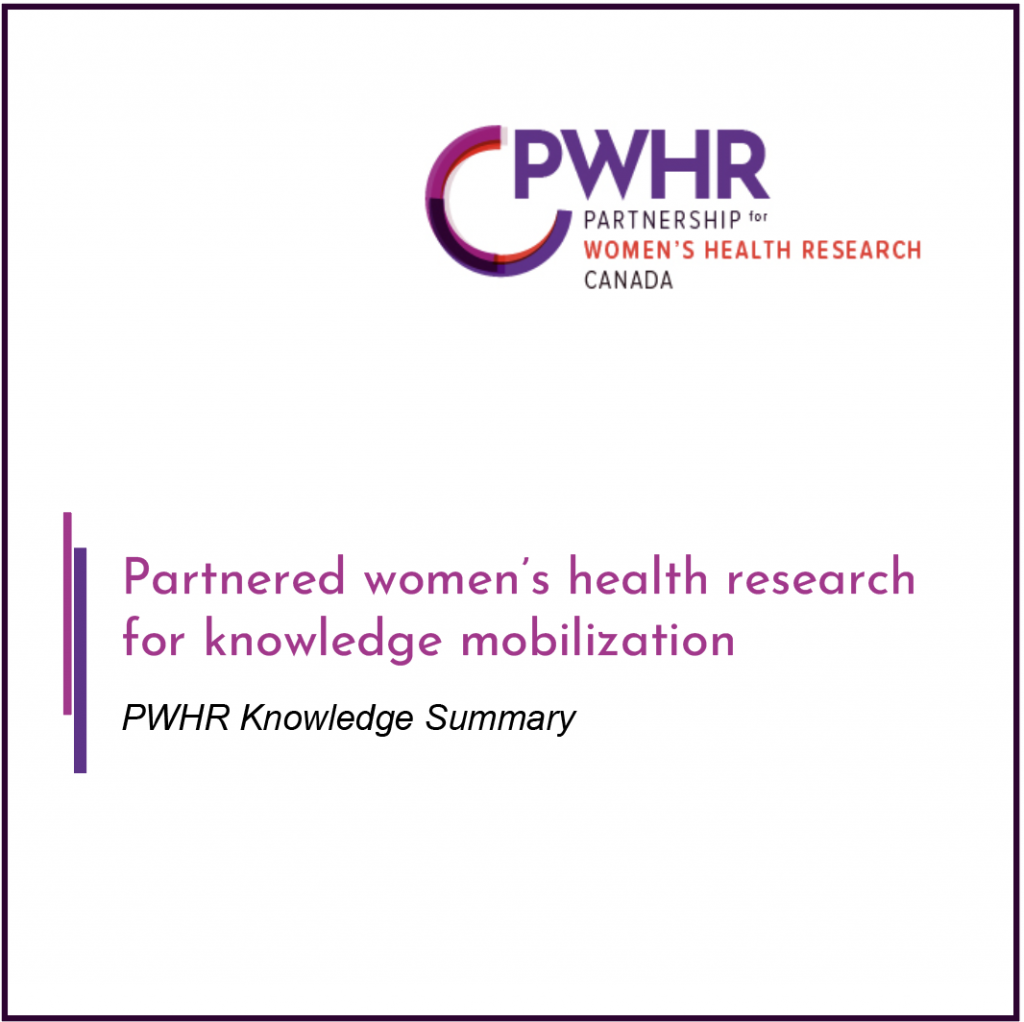
Partnered Women’s Health Research For Knowledge Mobilization: PWHR Knowledge Summary + Knowledge Mobilization Tool (2023)
The Partnership for Women’s Health Research Canada (PWHR) has produced a summary of key learnings from the inaugural Partnership for Women’s Health Research Seminar Series (2022-2023) outlining key principles and practices to support meaningful and sustained engagement and collaboration with communities, health and social service providers, and policymakers. The summary is accompanied by a tool (available as a PDF or as an editable Word document) that offers researchers and research teams questions to prompt reflection throughout engagement with knowledge holders and users, from project design through to end-of-project dissemination/implementation.
Surveying the Silence: Exploring the impact of taboos in women’s health (2023)
Recently the Alberta Women’s Health Foundation released this second thought leadership report, “Surveying the Silence: Exploring the Impact of Taboos in Women’s Health”. More than over 2,200 people were surveyed to understand their top health issues, concerns, and experiences seeking help for conditions specifically associated with women’s anatomy. The survey shed light on many health issues that are not regularly or openly discussed and put a focus on the questions we do not know to ask. Conditions about which little is known, and according to the respondents, even less is done, such as menopause, endometriosis, painful periods and PMDD, PCOS, pelvic floor issues, and more.

Finding the Fractures: The Pandemic, Women’s Health Disparities, and the Path to Equity (2021)
In May 2021, the Alberta Women’s Health Foundation launched a province-wide survey to listen to how the pandemic has impacted women in Alberta. The survey set out to measure the pandemic’s impact in the following areas: work-life, physical health, mental health, stress, and family dynamics. This report brings together data and evidence of the current disparities in women’s health, uncovers stories of women’s worsening mental and physical health, and details their many challenges juggling medical appointments, childcare, and work commitments.
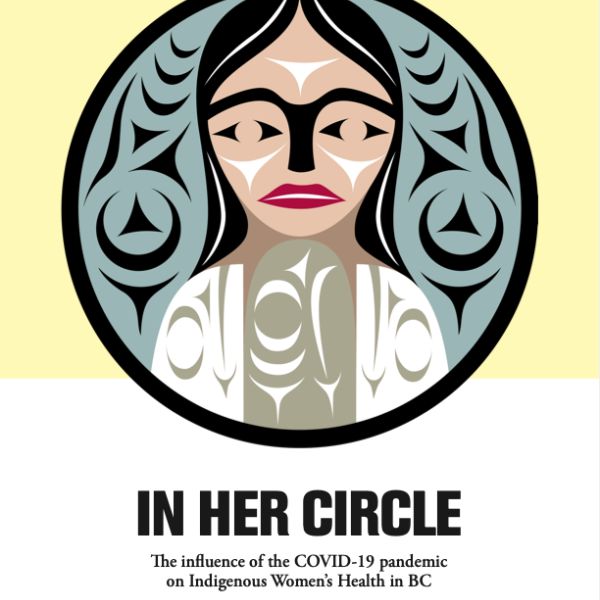
In Her Circle: The influence of the COVID-19 Pandemic on Indigenous Women’s Health in BC (2021)
BC Women’s Health Foundation and Reciprocal Consulting partnered to uplift the voices of Indigenous women across BC who shared their experiences about the state of their health and their shifting health priorities during the COVID-19 pandemic. The report uncovers their stories of isolation, of access issues, of resilience, and of community – and provides recommendations for a future where Indigenous women have equitable access to high-quality healthcare when, where, and how they need it.
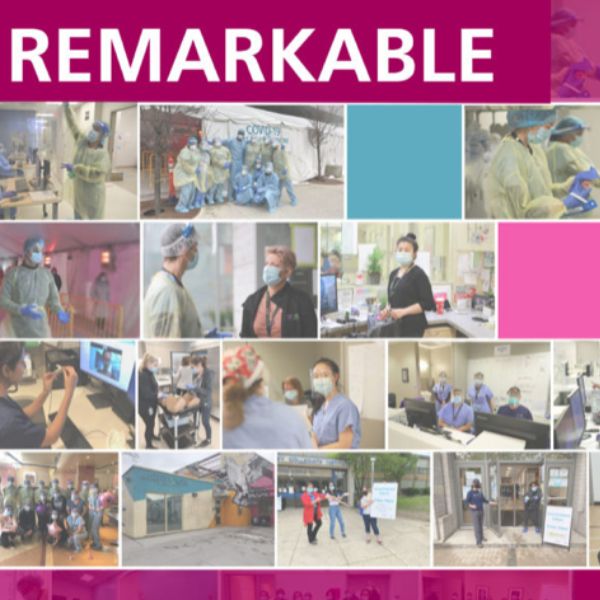
Remarkable: The response to the COVID-19 Pandemic (2021)
Despite the uncertainty brought to the world during the COVID-19 pandemic, the people at Women’s College Hospital (WCH) were ready. Remarkable shares the stories of perseverance and innovation seen from the WCH community during the pandemic.
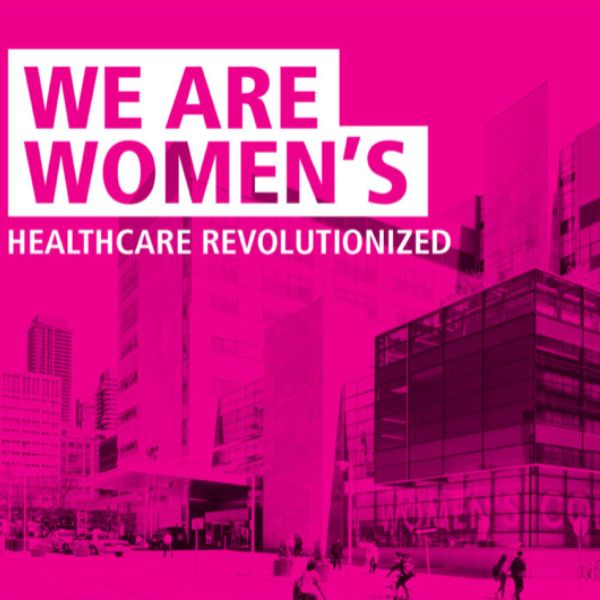
We Are Women’s Healthcare Revolutionized (2021)
For over 100 years, Women’s College Hospital has faced adversity head on – the COVID-19 pandemic was no different. The We Are Women’s report highlights WCH’s recent successes, and how they ensure the organization is well poised to build back better.
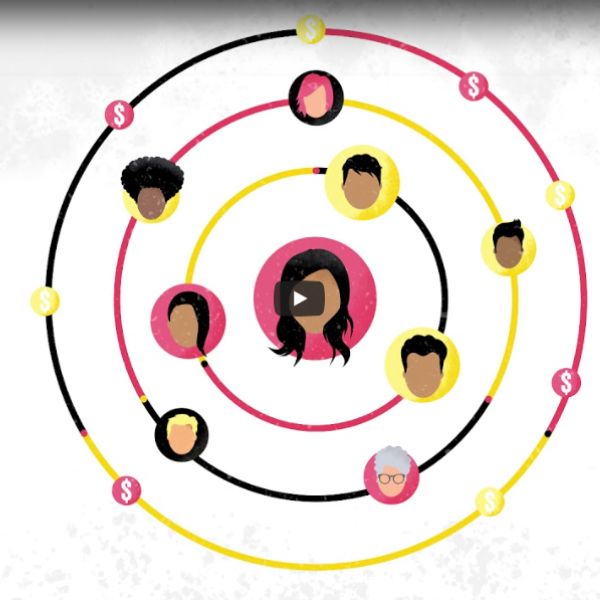
In Her Words: Women’s Experience with the Healthcare System in British Columbia (2020)
Despite decades of progress in health research, policy, and practice, women still face many barriers accessing the high-quality healthcare they deserve. In response, this BC Women’s Health Foundation report examines how women experience healthcare across the province. The aim is to drive changes within the system that will lead to healthy women everywhere, capable of anything.
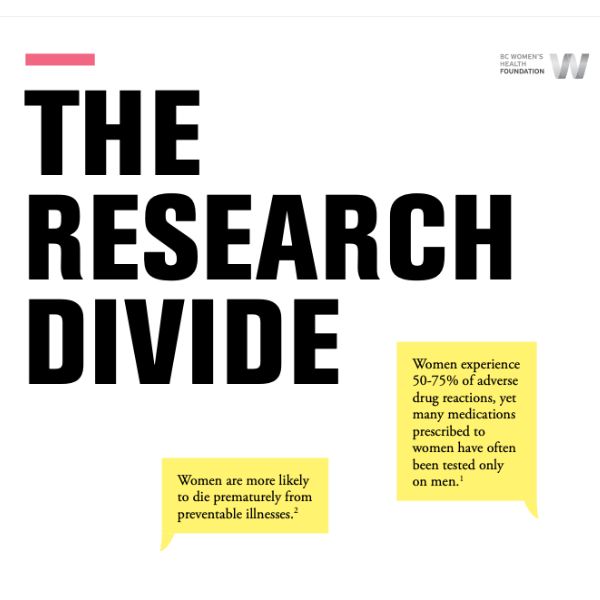
The Research Divide: Bias Against Funding Women’s Health Research Impacts Women’s Health Outcomes (2020)
Women’s health is unique. There are significant differences in how women and men experience health conditions. Yet the scientific research that informs medicine; prevention, diagnosis, and treatment; routinely fails to consider and investigate the crucial impacts of sex and gender. BC Women’s Health Foundation’s report addresses the gaps that exist in women’s health research and offers solutions to drive equity.
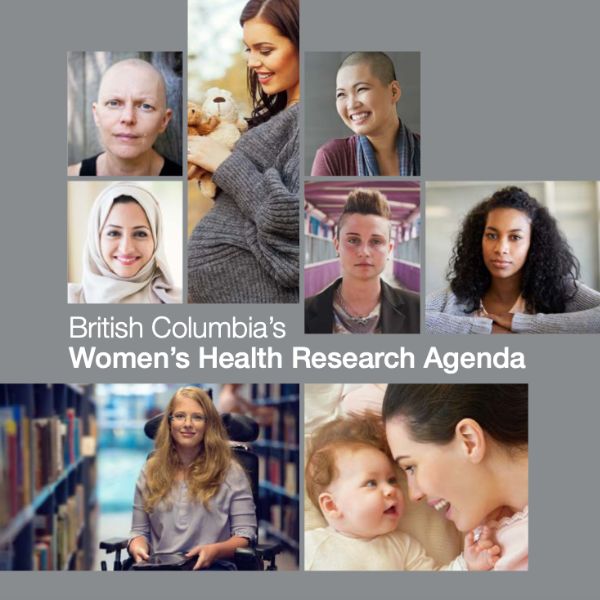
British Columbia’s Women’s Health Research Agenda (2018)
BC’s Women’s Health Research Agenda serves as a guiding document for those engaged in the women’s health research enterprise. It is intended to be useful, practical, and applied. This research agenda seeks to guide research and implementation innovations in women’s health, and see those innovations translated into health care practice and policy. It is intended to direct our work forward with strength and cohesion, focus and vision, to advance the field of women’s health research in British Columbia.
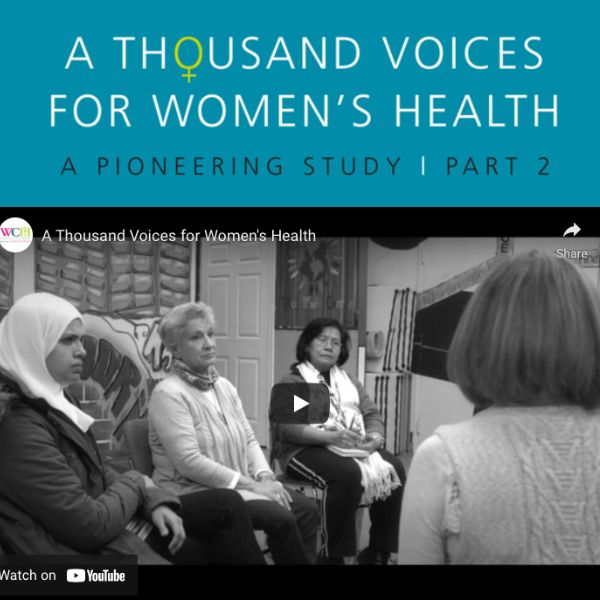
A Thousand Voices for Women’s Health (2016)
A Thousand Voices for Women’s Health report is a summary of study findings, conducted by Women’s College Hospital, that explored what women want from hospitals and healthcare services. More than 1,000 women from across Ontario, with diverse backgrounds, shared their personal stories, insights and experiences – identifying what was working, what can be improved and highlighted where the biggest gaps in the health of women occur.
PODCASTS
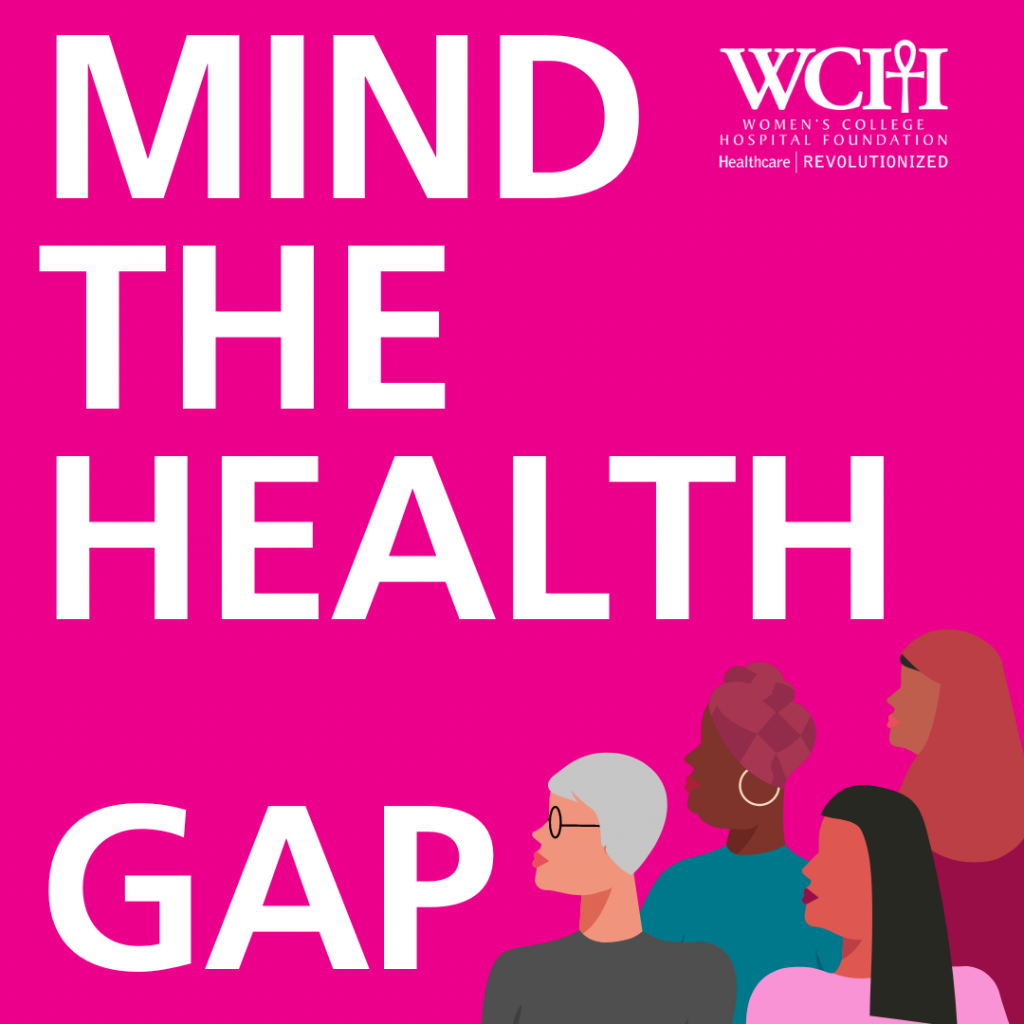
Mind the health gap
Mind the Health Gap, a podcast brought to you by Women’s College Hospital Foundation, offers in-depth conversations surrounding the gaps in Canada’s healthcare system and their dangerous consequences, featuring physicians and prominent leaders from Women’s College Hospital.
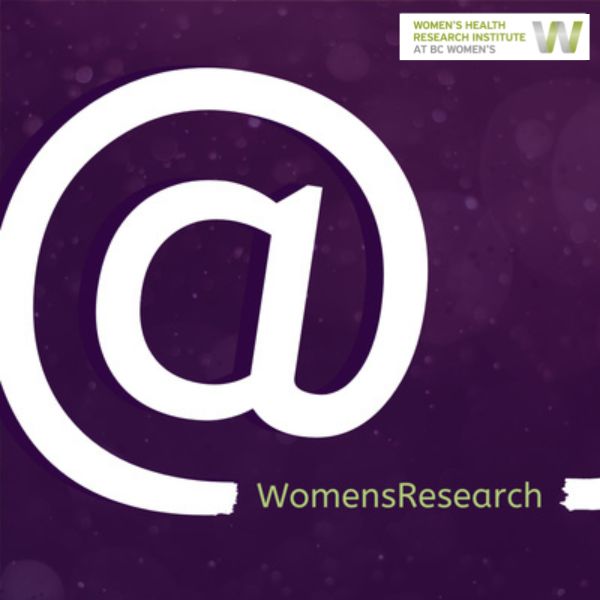
@WomensResearch
There is much more to research than results – there are rich and fascinating stories to be told about how scientists discover a gap in knowledge, how they collaborate, why they choose to pursue a line of inquiry, or why a research user should care about their work. @WomensResearch explores the latest in women’s health research in British Columbia, hosted by the Women’s Health Research Institute.

The Health Researcher’s Toolkit: Why Sex & Gender Matter
Women’s College Research Institute (WCRI) is a leader in the promotion of SGBA+ (sex- and gender-based analysis plus) across all health research – inclusive health research incorporates diversity by taking factors beyond sex and gender into account. The team at WCRI has developed a toolkit of learning modules to help health researchers integrate SGBA+ into a variety of research methodologies – from secondary data analysis to concept mapping.

The Partnership for Women’s Health Research Canada uses the term women to refer to all people who identify as women. We use trans and non-binary as umbrella terms to refer to people with a wide range of gender identities that are different from the gender they were assigned at birth.
This is a living document and we welcome feedback. For more information or to provide input, please contact communications@pwhr.org
Follow Us:
Copyright © 2025 Partnership for Women’s Health Research. All rights reserved.

